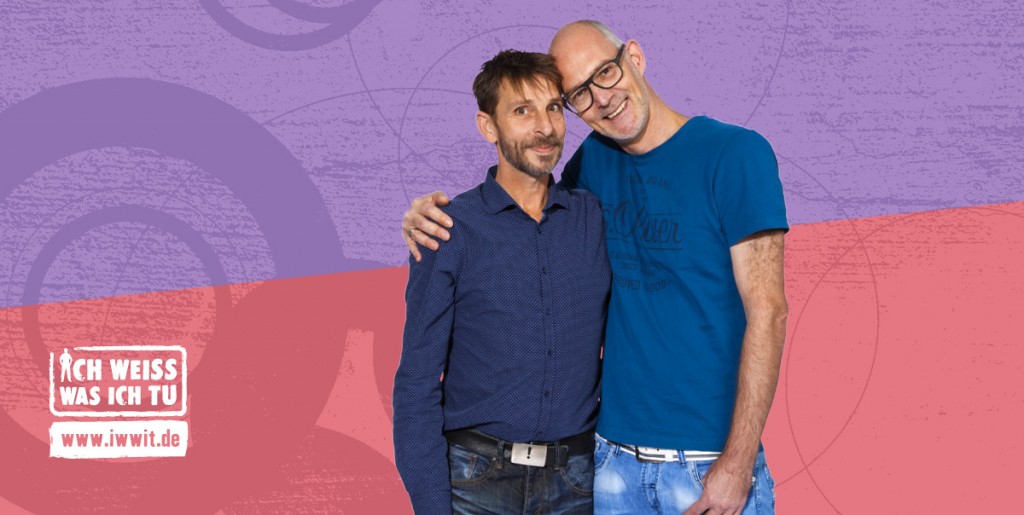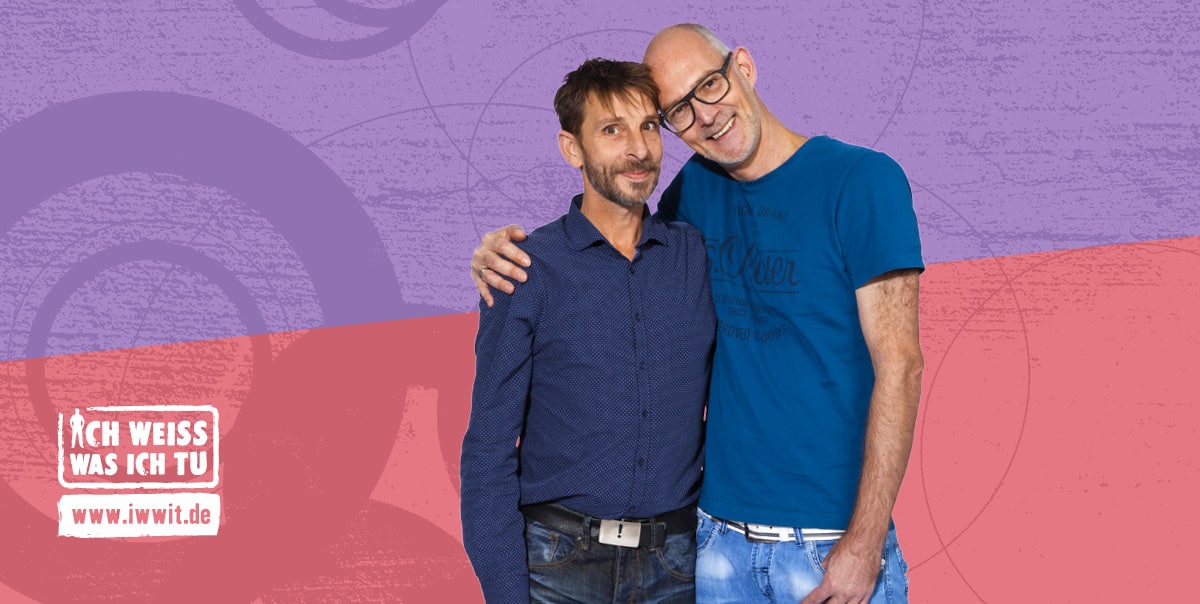A house in the country with a chicken coop, a romantic wedding in the village church - the life of Thilo and René sounds so idyllic. But that is also part of their lives: Both have been HIV-positive and struggle with the long-term consequences. They can also cope with this as a couple. What characterises an HIV-positive relationship?
Country life has a fixed rhythm. Every day begins with concentrated feed, coffee and tablets. The animals get the food. Thilo (52) and René (48) keep chickens and sheep. The two men take the coffee and tablets themselves. Thilo is the more penile one, so he not only counts out his pills, but also those for his husband: three for HIV, one for allergies and a fifth for the pain in his legs. "I always say to Thilo: Give me my daily poison today," says René and laughs: "Despite everything, the medication is a form of poison that I do to my body." But without the well-dosed poison, HIV viruses would spread through their bodies.
"HIV has a completely different significance for us"
Apart from the mocking variation of the Lord's Prayer, not many words are needed. For Thilo and René HIV is part of their everyday life: they are a positive couple. They were diagnosed back in the 1990s. "All the basics have been sorted out," says Thilo. "But I'm already making sure René takes his tablets. They need to be taken as regularly as possible to achieve their full effect." René would be more lax with the HIV tablets without his husband. But not with the medication for his aching legs. "I couldn't get through the day without them," René emphasises. Only the quantity varies: "Do I only take the second tablet in the evening? Or do I take one earlier?" This is especially true for working days. "As a waiter, you walk a lot," explains René. "By the time I've finished my six-hour shift, I've already got to go up in the afternoon." Then everything hurts, from the soles of my feet right up to my thighs. "The virus has ruined my nerves," says René.
Everyone has their own way of dealing with HIV
When René was diagnosed in 1993, there was no cure for HIV. When there were, the doctors advised him to wait before starting treatment. The side effects were considered too severe. René only started combination therapy in 2013. "By then, the virus had destroyed a lot of things that I could no longer rebuild," explains René. Unlike Thilo, his immune system has not recovered. "People who were infected in the 1980s or 1990s have simply suffered greater damage and are often less efficient," Thilo realises. Leading an unbiased, almost normal life is no longer so easy. "HIV has a completely different significance for us."
Because the daily pills don't work as well as hoped, René is also reluctant to go to the regular check-ups with the HIV specialist. "I just don't feel like it," says René emphatically: "I sit on the train for three hours and in the waiting room for half an hour, only to spend ten minutes talking about blood values that don't change. That annoys me!" Instead of every three months, as the German AIDS service organisation René now only goes for check-ups every four months.
Thilo, on the other hand, makes his way to Berlin eight times a year: four times to have his blood taken, four times for an assessment. The many doctor's appointments have their good points, says the trained confectioner and security master: "If something is wrong, it is quickly recognised and treated. On the other hand, I often have the feeling before the appointment: Oh God, what other complaint is coming on top of this?" Thilo has not been able to sleep through the night since he started HIV treatment. He is now also taking a remedy for this - "one more tablet."
Their sex life has also changed. "Sex is a matter of definition," explains Thilo, "and we just cuddle." "I just don't feel like having sex anymore," explains René. "I don't miss anything. But my husband does." But Thilo has also had phases in which he has lost all desire. "At the beginning of the 2000s, I was often labelled a virus slinger," Thilo remembers. If he came out as positive, his sex partner was gone. "And if I didn't say anything, I didn't have any fun because I couldn't switch my head off." There was always this feeling of being at risk of infection. "That really put me off sex."
"We can empathise with each other."
The advantage of an HIV-positive partnership is that both understand how the other is feeling: "Sometimes that's good because we can empathise with the other person," explains René. But sometimes we're also hyper-sensitive about it." René laughs and adds: "Mostly me."
Getting older is also easier to bear with a partner. René is very concerned about this: "One of the first thoughts after my HIV diagnosis was: Yay, I'm not getting old!" he remembers. "I comforted myself with that at the time. The medication gave me more time to live - and now I'm filling it with getting old. That's not so exciting." Thilo is more relaxed: "Growing old was never a big issue for me," he says. Even though he has heard that some HIV-positive people age more quickly. Some experts fear that the chronic infection gradually damages the body's cells. "But that's not why I'm panicking," says Thilo. He thinks that his "aggressive optimism" and René's "discreet pessimism" make a healthy mix. The positive pair complement each other perfectly, René also says: "We both fit like a glove."











